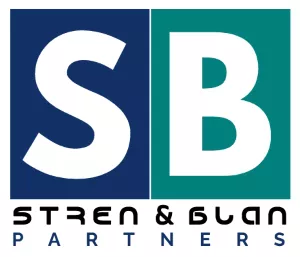INTRODUCTION
Fast-Moving Consumer Goods, more commonly known as FMCGs, are a category of products that are in high demand among consumers and can be easily produced, transported, and purchased. These goods include both perishable and non-perishable products such as food and beverages and household supplies. Due to their high demand, FMCGs are typically sold quickly. However, their profit margins are generally low.
To understand the Nigerian FMCG sector, it is essential to scrutinise the market dynamics and factors that drive growth in the sector. One of the factors responsible for driving growth in the industry is the thriving rate of urbanisation. As more people migrate to cities and adopt modern lifestyles, there has been a shift in consumer preferences towards convenient and ready-to-eat products. This trend has spurred the growth of the packaged food and beverage segments. The Nigerian FMCG industry is a rapidly growing sector highly influenced by market dynamics and consumer trends.
REGULATORY COMPLIANCE REQUIREMENTS FOR FMCGS IN NIGERIA
There is no specific regulatory body dedicated to the FMCG sector in Nigeria. However, the regulatory functions of certain statutory bodies apply to the industry. These include the functions of the:
1. Corporate Affairs Commission (CAC)
The administration of the provisions outlined in the Companies and Allied Matters Act of 2020 (CAMA) falls under the purview of the Corporate Affairs Commission (CAC). According to the Act, all businesses operating within Nigeria must register with the CAC, with certain limited exemptions. Compliance with this provision is mandatory for all companies. As such, FMCG companies must register with the CAC and obtain a Certificate of Incorporation before embarking on their business activities. Section 78 of CAMA 2020 mandates every foreign company that intends to carry on business in Nigeria to be incorporated as a separate business entity in Nigeria, except the foreign company is exempted by the Minister of Industry, Trade and Investment.
Where a foreigner is a shareholder in the company, the minimum share capital required is 100 million Naira, (although CAMA 2020 provides for 10 million Naira), as such, the percentage of shares held by each shareholder which on the aggregate would cover the stated amount must be indicated on the Memorandum of Association of such company. The Companies are also required to file annual returns detailing their assets and liabilities. The requirement to file annual returns is mandatory and the failure to file annual returns for a period exceeding ten (10) years will result in the company being struck off the Register.
2. Standards Organisation of Nigeria (SON)
The Standards Organisation of Nigeria operates a certification scheme for products in Nigeria. As a statutory body responsible for standardizing and regulating the quality of all products in Nigeria, SON ensures that all locally manufactured products as well as imported products in Nigeria comply with applicable Nigerian Industrial Standards (NIS) before they are sold in the Nigerian market or exported. As such, all products manufactured or imported into Nigeria must apply for a certification from SON before they can be distributed and sold. Certified products are also monitored through periodic factory inspections and testing by SON officials to ensure consistent compliance with the NIS.
3. National Agency for Food and Drug Administration and Control (NAFDAC)
NAFDAC is a regulatory body that plays a vital role in protecting the health of the general public in Nigeria. Its primary responsibility is to regulate the manufacture, distribution, sale, importation, exportation, and consumption of medicines, food, chemicals, cosmetics, packaged water, and medical equipment throughout Nigeria. NAFDAC ensures that appropriate tests are conducted and standard specifications are maintained to ensure the effective control of the quality of food, bottled water, and raw materials, as well as the safeguarding of the production processes in factories and other establishments. To this end, food business owners are required to register with NAFDAC. The registration requirements may differ depending on whether the product is locally manufactured or imported. Upon successful registration, the products will be issued a unique NAFDAC Registration Number. This is to ensure that the product has met the necessary standard specifications and is safe for consumption. It is important to note that different food products must be registered separately, irrespective of whether they are produced by the same company.
4. Federal Competition and Consumer Protection Commission (FCCPC)
The FCCPC is a regulatory agency that was established by the Federal Competition and Consumer Protection Commission Act of 2018. Its core function is to promote fair, efficient, and competitive markets in the Nigerian economy.
The Commission achieves this mandate by enforcing the provisions of the Act, which prohibit anti-competitive behaviour and unfair trade practices. The Commission's efforts to promote fair competition and consumer protection have contributed to the growth and development of the Nigerian economy. The Commission's strict enforcement of regulations and consumer protection laws has also led to a reduction in fraudulent activities and anti-competitive practices.
The FCCPC plays a crucial role in facilitating access to safe products and securing the protection of consumers' rights in Nigeria. Its continued efforts to promote fair competition and consumer protection are essential for maintaining a robust and sustainable economy in Nigeria.
5. Federal Inland Revenue Service (FIRS)
Businesses must register with the Federal Inland Revenue Service (FIRS) for tax remittance purposes. Upon registration, a Tax Identification Number (TIN) will be generated for the business. The business entity can use the TIN to access the Tax ProMax portal for the purposes of filing returns and remitting various applicable taxes. Application for a VAT Number and a Tax Clearance Certificate (TCC) amongst others, can also be done on the E-portal.
6. State Inland Revenue Service (SIRS)
Each State has its Internal Revenue Service tasked with collecting income taxes levied on the monthly income of resident employees under the Pay as You Earn (PAYE) scheme. As such, FMCG companies must register with the relevant State Internal Revenue Service within six months of commencing business to ensure the remittance of their employees' income tax.
While the regulatory bodies listed above are not exhaustive, compliance requirements present a challenge to businesses. It is suggested that FMCG companies adopt and implement compliance management systems to aid in the evaluation, monitoring, and improvement of compliance efforts. This approach can help businesses overcome the perceived cumbersomeness of compliance requirements and ensure adherence to regulations.
OPPORTUNITIES IN NIGERIA'S FMCG SECTOR
The FMCG sector in Nigeria has undergone remarkable growth and transformation over the years. It is expected that the sector will continue to expand and create more opportunities in the coming decade. The following opportunities have been identified:
1. Large and Growing Consumer Base
Nigeria has the largest population in Africa, with approximately 217.5 million people as of September 2022. This youthful population, with a significant proportion under 30, is driving the demand for FMCG products such as food and beverages, personal care items, and household goods. Retail sales in Nigeria are projected to increase by 27% between 2022 and 2027, reaching a new peak of over $160 billion. However, consumers are becoming more discerning, as quality and health consciousness influence their decisions.
2. Rising Disposable Income
Nigeria's middle class is expanding, increasing disposable income. This trend is expected to drive consumer spending on FMCG products, especially premium and discretionary items. According to a report by the African Development Bank, in 2020, 184.8 million Africans had daily per capita expenditure of between $3 and $5, while 77.9 million Africans spent between $4 and $10 daily on FMCG products. This translates to an average expenditure of $642.25 million spent daily by Africans on FMCG products in 2020, a figure that continues to rise.
To view the full article click here
The content of this article is intended to provide a general guide to the subject matter. Specialist advice should be sought about your specific circumstances.



